
Assassin's Creed: Unity Review
Price: £39.99Developer: Ubisoft
Publisher: Ubisoft
Platforms: PC, Xbox One, PS4
Version Reviewed: PC
By now you've probably heard about the shambolic release of Assassin's Creed Unity, how the game is riddled with bugs and glitches, performs on all platforms about as well as an arthritic pianist, and had its review embargo delayed until after the game's launch. All of this is true, and Ubisoft have been rightly admonished for the shoddy state the game was launched in and the underhand PR practices which has hobbled the review process.
Yet we should be careful not to let these things overwhelm our judgement of the game. Not because Unity is some kind of rough diamond, but because its problems run far deeper than technical hitches. Unity's story is not one of a brilliant game marred by rushed QA, but of technical bombast placed in favour of systematic innovation. Ironically, for a game about one of the world's most historically significant radical movements, Assassin's Creed Unity is astonishingly conservative.
Set during the closing decade of the 18th Century, Assassin's Creed Unity continues the centuries-long conflict between the Assassin Brotherhood and the Templar cult on the streets of revolutionary France. This time around, however, the battle lines are far less clear. A form of peace has emerged between the two factions, as both sides grow to realise they are not so different as they once believed. The main character, Arno, is the catalyst for this. Raised by a Templar Grandmaster after the murder of his father, Arno is drawn to the Assassin's cause when said guardian is killed by dissidents within his own organisation.
It's probably the most coherently written and compellingly told of all the Assassin's Creed narratives, willing to see grey areas in both factions, and to ask questions about their respective moralities. It also focuses in on a small number of characters and concentrates on establishing strong relationships between them. Arno Dorian is a surprisingly sweet and sympathetic fellow given he's technically a mass murderer. He isn't quite as fun as the rapacious caricature that is Edward Kenway, but he's by no means a broomhandle like Altair or Connor Whathisface from Assassin's Creed III. Is personality is balanced nicely between humour and severity. You're able to take him seriously, but he isn't burdened by it.
The entire cast is competently written and excellently acted. Yet the best character of all, as is always the case with Assassin's Creed, is the city itself. Revolutionary Paris is another metropolitan marvel from Ubisoft, a sprawling, smoky hive of activity. The view from the rooftops is breath-taking, a handmade mountain range of stony peaks and ceramic valleys that are a delight to skip and jump and race across. On the ground there's a level of detail we haven't witnessed before. Vast crowds of protesters cluster around major landmarks such as the Notre Dame and Sant Chappelle cathedrals. Wealthy merchants and noblemen play in parks and laze outside cafes sipping coffee from china cups. Craftsmen and shopkeepers recoil in surprise as you dash through their shadowy workplaces. I remember running through one building and hearing the pop of champagne corks as a waiter served glasses of bubbling wine to ladies of leisure.
Those early hours spent absorbing the sights and sounds of the city are a delight. They'd be even better if the game performed smoothly. It's worth noting that my current rig doesn't even match the minimum of Assassin's Creed Unity's absurd system requirements, which suggests a GTX 680 as the lowest card on which the game will run). That said, I suspected these specifications were a nonsense before the game was released, and I was right.
I reckon Unity could run fine on my 660 if Ubisoft had bothered to optimise the game properly. The issue isn't so much a low frame rate as the fact that the game drops frames every few seconds, making the experience like watching a poorly buffering YouTube video. Weirdest of all, however, is the fact that the game runs worse during cut-scenes than it does in game, dropping from 30-40FPS down into the teens when the game gets its cinema on.

MSI MPG Velox 100R Chassis Review
October 14 2021 | 15:04

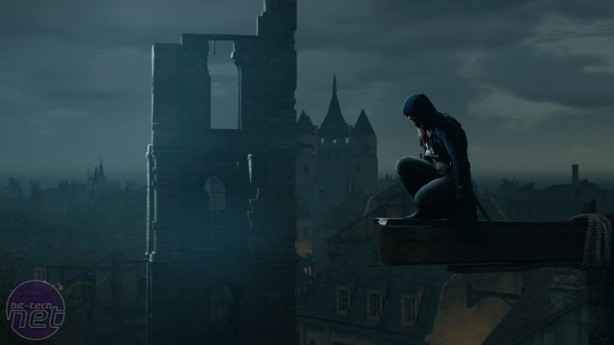
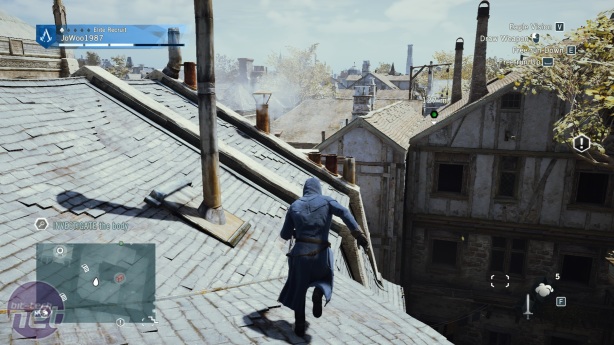
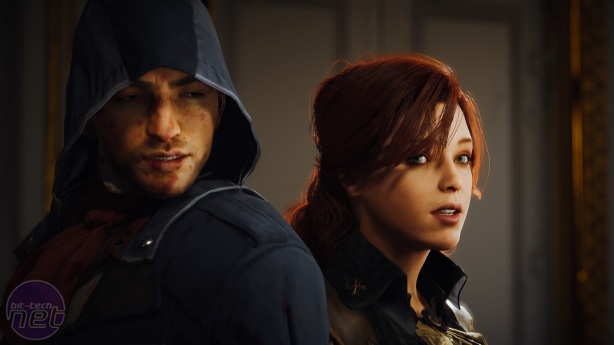
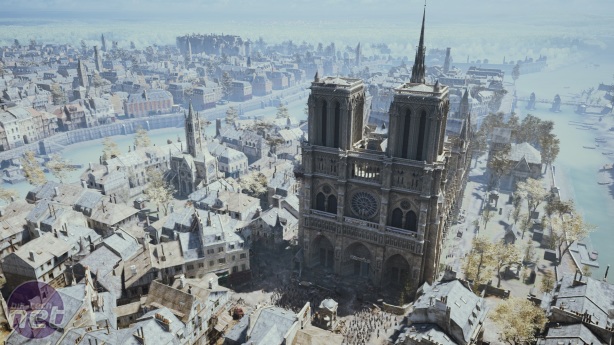
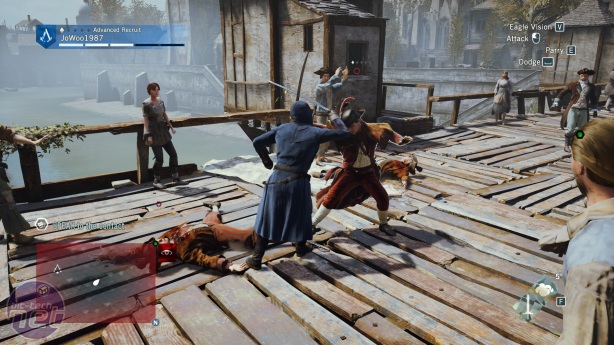








Want to comment? Please log in.